Chwarae teg: A day, a Senedd, a country to be proud of
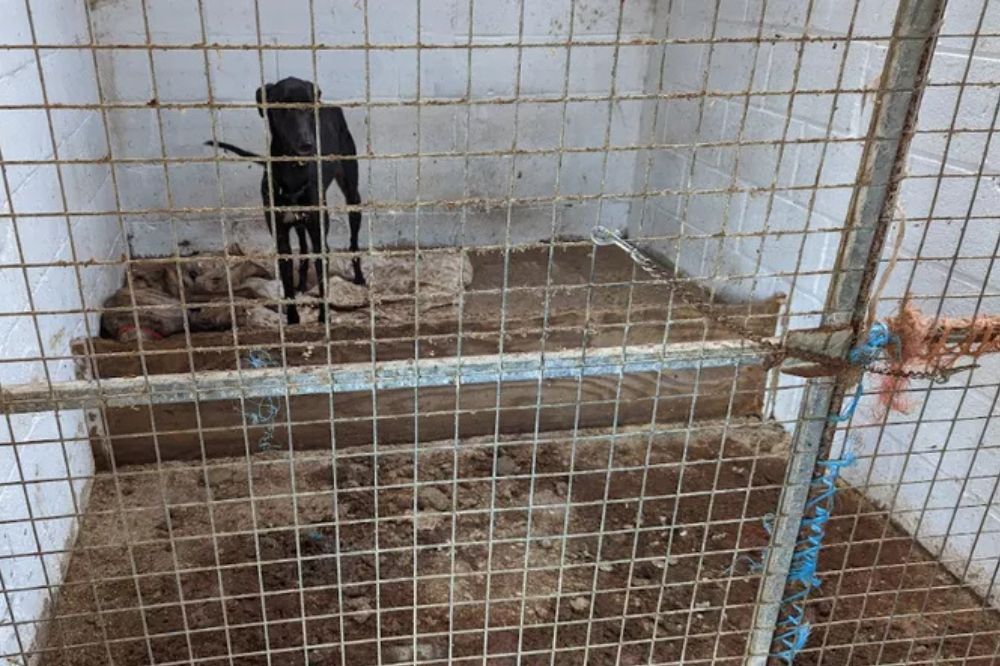
Stephen Price
Following a petition signed by over 35,000 people, the Welsh Government announced groundbreaking plans for Wales to become the first nation in the UK to ban greyhound racing yesterday (18 February).
Huw Irranca-Davies, the deputy first minister, told the Senedd that a ban will come into force as soon as practicably possible.
He said: “There will be work to do in ensuring the dogs, their owners, and those involved in the industry around the racetrack, can wind down from this activity while still protecting the welfare of dogs currently within the industry, the local community and the local economy.”
Mr Irranca-Davies pointed to cross-party support and tens of thousands of petition signatories calling for the ban.
Senedd members from across the political divide supported a ban during a debate last week. A ban that will affect Valley Greyhound Stadium in Ystrad Mynach – the last remaining track in Wales.
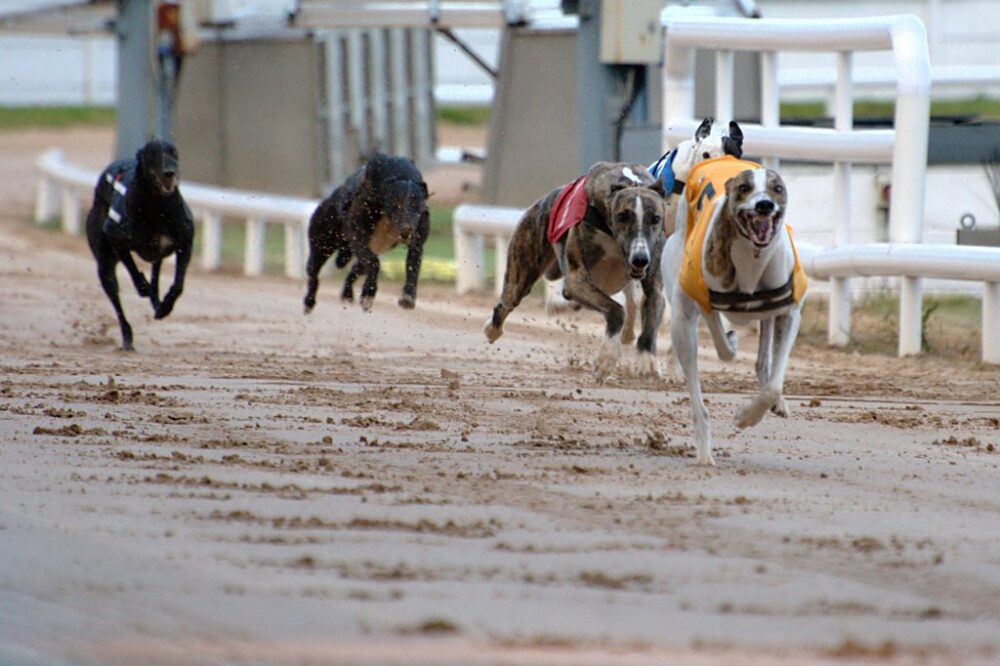
New Zealand announced plans for a ban due to injuries and the deaths of dogs back in December, despite its industry being worth over £73m a year and employing 1,000 people.
Mr Irranca-Davies said: “We also note what is happening in other countries across the world who are taking steps to ban this activity.
“As a result, I believe that now is the right time to move to ban greyhound racing in Wales – we are proud to be the first nation in the UK to do this.”
“I’m pleased to share with the Senedd that I have seen the strength of feeling on this and I have listened.”
“Inherently dangerous”
The Greyhound Board of Great Britain (GBGB) figures for 2022 showed 4,354 injuries sustained during races with 306 deaths among greyhounds used for racing, and 99 fatalities at trackside.
Will Morton, head of public affairs at the League Against Cruel Sports, said: “The greyhound racing industry is inherently dangerous and the high number of injuries and deaths highlight why the ‘sport’ needs to be phased out as quickly as possible and banned.
“Greyhounds are losing their lives or being maimed at tracks up and down the country in order to generate profits for the gambling industry and people’s entertainment– this sacrifice is cruel and flies in the face of animal welfare.”
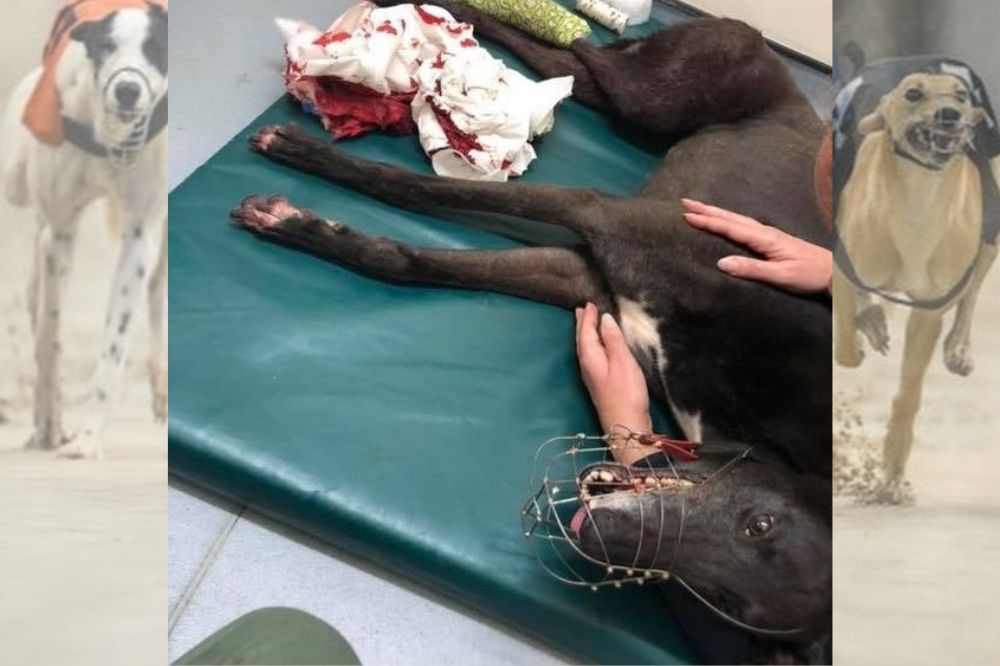
Trudy Baker, coordinator of Greyt Exploitations, a greyhound protection group, said: “Year on year, the greyhound industry repeatedly fails to honour its commitment to reduce injuries. In fact, in terms of percentages, injuries have increased from 1.16% in 2018 to 1.20% this year.
“The dangerous configuration of tracks – tight bends and long fast straights – which damage the dog’s musculoskeletal system will always result in injuries and the unnecessary suffering of thousands of greyhounds every year.”
And the life for racing greyhounds when not on the tracks?
According to OneKind.org: “Racing dogs reportedly spend 95% of their time in kennels with little social contact.
“Many greyhounds used by the racing industry are kept in kennels, in conditions which do not allow the dogs to thrive. In the worst instances, dogs can live in dank, dirty kennels, suffer from untreated wounds and injuries, receive inadequate veterinary care, and be shouted at or roughly treated.
“Additionally, a study into greyhound welfare conducted by the University of Bristol in 2012 found that more than 95% of greyhounds who are kept with another dog are constantly muzzled – a practice that is highly distressing for them.”
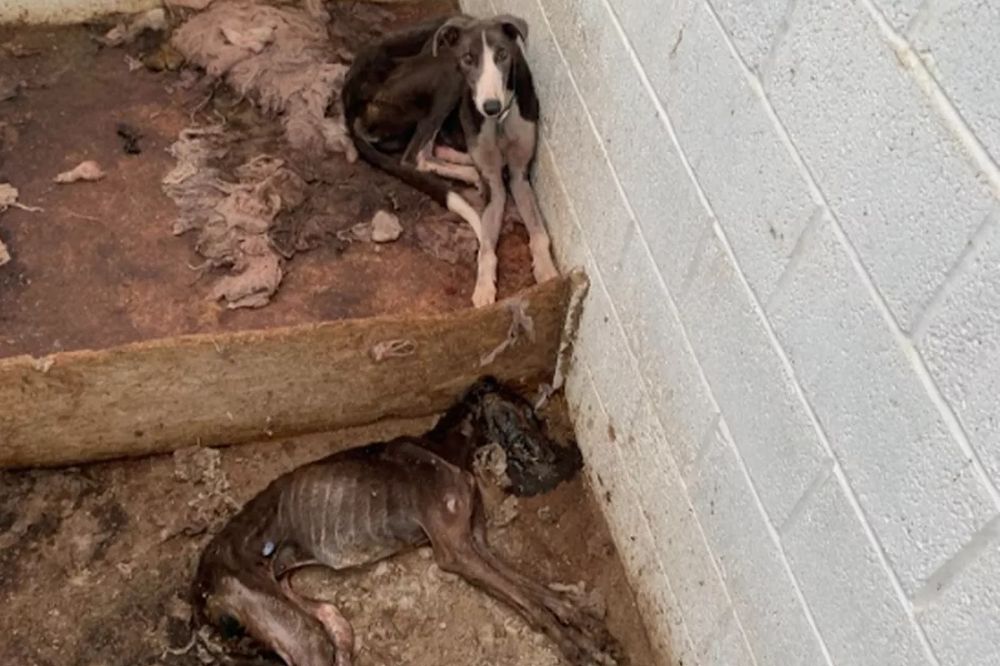
In July 2023, it was widely reported that a GBGB trainer of 17 years from East Yorkshire left greyhounds to starve in dirty kennels surrounded by their own faeces and, in at least one case, the dead bodies of their kennel mate.
Three dogs had to be euthanised and one died on her way to the vet.
“A victory for dogs”
The League Against Cruel Sports was one of the first charities to share the good news, with hopes of similar bans across the UK’s other nations.
Hailing the decision, ‘a victory for dogs’, they wrote: “Wales has shown true leadership, and now it is time for the rest of the UK to follow suit.”
Closer to home, Greyhound Rescue Wales wrote joyously: “This is a momentous day for greyhounds, an ancient and noble breed whose very recent history has been blighted by this cruel and unnecessary gambling product.
“This decision has been decades in the making and we want to say a huge thank you to every single person who played their part in standing up for greyhounds in Wales. You have given a voice to these amazing animals who have no voice of their own.”
Dr Samantha Gaines, Head of Companion Animals at the RSPCA, said: “This is a historic day for animal welfare in Wales; and will protect countless greyhounds from the inherent risks that come with competitive racing.
“Greyhound racing has long been in decline as a leisure activity; and we know huge numbers of people have shared our concerns about the number of dogs across the UK dying or sustaining serious injury.
“This campaign has been a monumental team effort – from the animal welfare groups involved, but also the animal-loving public across Wales who have made their voices heard loud and clear. With greyhound racing now continuing in so few countries, we hope the Welsh Government’s action sends a strong statement to the rest of the UK.
“We now stand ready to work closely with the Welsh Government, the racing industry and racing greyhound owners to protect the dogs who will now exit competitive racing; and help find them a loving home.”
Wales’ backyard breeders and puppy farms… here’s looking at you next.
Chwarae teg
If there’s one defining thing about the Welsh, all cliches, all differences, all backgrounds and divisions aside, I feel the term ‘chwarae teg’ sums up our nation, our people, and our current leaders at the Senedd, however tempting it is for us all to focus on the negatives, to go for the ankles.
Throughout all our most defining historical moments – I’m sure I don’t need to list them – a simple call for ‘chwarae teg’ lies at our nation’s very heart
Meaning, quite simply, ‘fair play’, it’s something yesterday’s greyhound ban encapsulated so so beautifully.
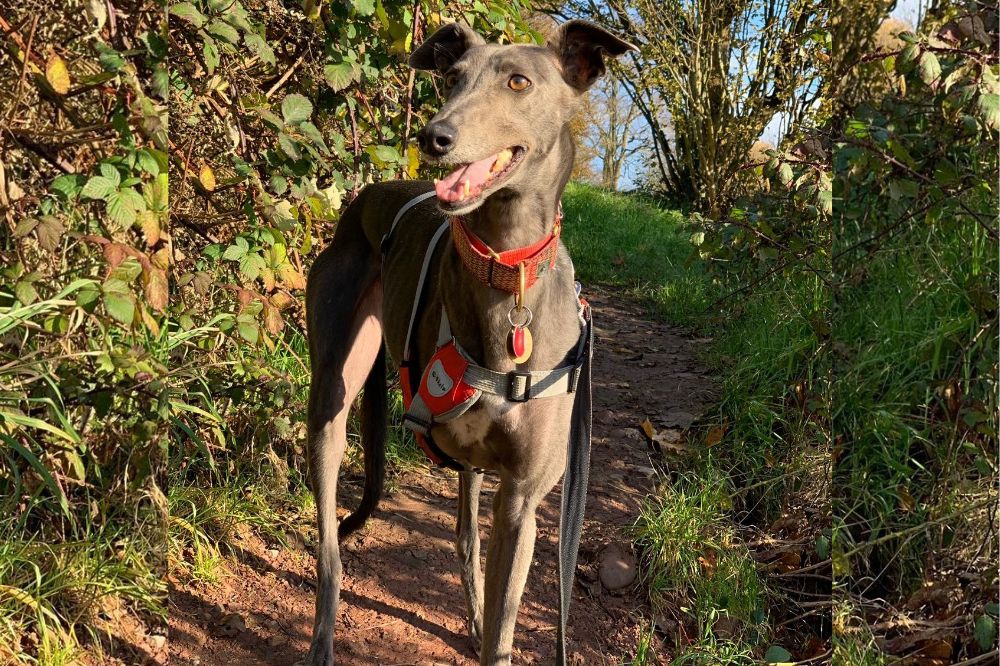
Bravo to all who made it happen.
I’ve not felt so proud of the Senedd for such admirable and graceful leadership for some time.
And I’ve not shed happy tears for a good while either. I needed that.
This is the Wales I know, love, and am proud to call home – united in our shared sense of fair play.
Chwarae teg.
Dal ati.
Support our Nation today
For the price of a cup of coffee a month you can help us create an independent, not-for-profit, national news service for the people of Wales, by the people of Wales.






Ah yes, yet another prime example of the Senedd’s relentless obsession with performative, Guardianista-approved legislation that achieves precisely nothing—except, of course, putting people out of work. But never mind that, because optics matter more than livelihoods. Let’s be honest: the dogs are clearly fit, healthy, and more than capable of chasing the hare—probably in better shape than most of the politicians banning the sport. And, shock horror, it’s predominantly white working-class men who follow it! Can’t have that, can we? Meanwhile, real problems—like, say, homelessness—are spiralling out of control. Had a pint yesterday with a young father on the brink… Read more »
Spot on. Next year Labour will discover that greyhounds, badgers, newts and toads don’t have the vote; but your friend does and so does someone I know who has been on a hospital trolley since last weekend.
Dogs dying unnecessarily for your entertainment IS a real problem, as anyone with half a brain or heart would realise. Please go back to your incel cave and leave people with brains to make decisions. Btw just because something has ‘been around for generations’ doesn’t make it right. Most ordinary people were essentially enslaved workers for many generations , tied to the landowner. I’m sure you are glad we didn’t stick with that one!
We have more of a problem in Wales with exploitative puppy farming both licensed and unlicensed. This needs to be prioritised above and beyond any other element of animal cruelty. But that would require hard work
You can tell whether something is positive by the types of person it offends. And this has really triggered some of the most awful of humanity. Excellent news!
Make NO mistake. This is good news for Greyhounds and animal lovers. Greyhound racing is a cruel sport. Dont support it
This is a great example of the Senedd using what little power it has in response to what the people of Wales care about. I hope it will serve as an inspiration for other countries to ban this “sport”.
I totally back this move. Now can we extend the same measures to horse racing. Everything mentioned above about the life and deaths of racing dogs can be said about the horses that are cooped 23 hrs a day and of which thousands die a year on the the track, many before their maiden race. Most are after ‘retirement’ (if they live that long) are shipped abroad for slaughter.. Let’s stop all barbaric cruelty to animals. Hunting and hare coursing too.
Could not agree more. Grouse shooting and the persecution of our native birds by wealthy landowners and their oiks on the list too. I purposefully made this about praise for the Senedd, but expect more ankle biting soon 😀 And if you know anyone who would like to write any op eds on such things, pass them my way. The more voices on this the better.